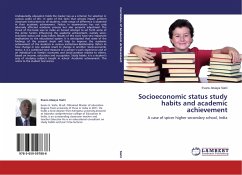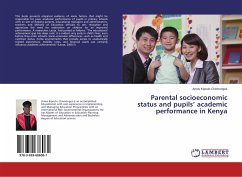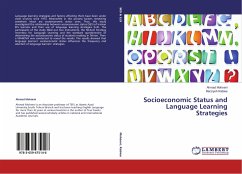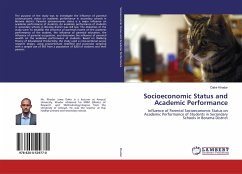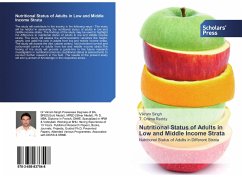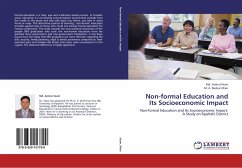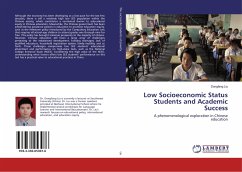
Low Socioeconomic Status Students and Academic Success
A phenomenological exploration in Chinese education
Versandkostenfrei!
Versandfertig in 6-10 Tagen
46,99 €
inkl. MwSt.

PAYBACK Punkte
23 °P sammeln!
Although the economy has been developing at a fast pace for the last few decades, there is still a relatively high low SES population within the Chinese society, which constitutes a contextual barrier to educational equity in Chinese education. Meanwhile, the Chinese government has been administering assistance policies in education to promote education equity, such as the milestone policy introduced by the Compulsory Education Law that requires all school-age children to attend grades one through nine for free. This policy has brought immense prosperity to the majority of citizens. However, C...
Although the economy has been developing at a fast pace for the last few decades, there is still a relatively high low SES population within the Chinese society, which constitutes a contextual barrier to educational equity in Chinese education. Meanwhile, the Chinese government has been administering assistance policies in education to promote education equity, such as the milestone policy introduced by the Compulsory Education Law that requires all school-age children to attend grades one through nine for free. This policy has brought immense prosperity to the majority of citizens. However, Chinese education still faces a large array of challenges pertaining to the imbalanced development, funding shortages, lack of qualified educators, household registration system, family mobility, and so forth. These challenges compromise low SES students' educational attainment and performance on high-stake tests, such as the National College Entrance Exam (NCEE). Considering the high value of the NCEE, understanding what factors affect low SES students' performance on this test has a practical value to educational practices in China.



